
Adieu, Anouk. La plus belle.













Mieux vaut ne penser à rien que de pas penser dutout
Rien c’est déja, rien c’est déja beaucoup
On se souvient de rien et puisqu’on oublie tout
Rien c’est bien mieux que tout
Mieux vaut ne penser à rien que de pas penser à vous
Ca ne me vaut rien, ca ne me vaut rien dutout
Mais comme si de rien était je pense à tout
Ces petits riens qui me venaient de vous
Si c’était trois fois rien, trois fois rien entre nous
Evidemment ca ne fait pas beaucoup
Ce sont ces petits riens que j’ai mis bout à bout
Ces petits riens qui me venaient de vous
Mieux vaut pleurer de rien que de rire de tout
Pleurer pour un rien c’est déja beaucoup
Mais vous, vous n’avez rien dans le coeur déja vous
Je vous envie, je vous en veux, beaucoup
Ce sont ces petits riens qui me venaient de vous
Les voulez vous tenez que voulez vous
Moi je ne veux pour rien au monde plus rien de vous
Pour être à vous faut être à moitié fou

The Summer blockbuster was initiated with the release of Jaws in 1975. Adapted from the Peter Benchley novel which director Steven Spielberg saw when it was still in galley proofs, it limned Ibsen’s The Enemy of the People but viewers might also recall aspects of his father Nathaniel Benchley’s novel The Off-Islanders which became the film The Russians Are Coming, the Russians Are Coming.

Benchley co-wrote the screenplay for Jaws with Carl Gottlieb. He plays a TV reporter in the 4th of July beach scene.

There were three versions of the fake Great White (Carcharodon carcharias) and they were all called Bruce after Spielberg’s lawyer.

Stuntwoman and actress Susan Backlinie who played Chrissie Watkins the shark’s first victim died 11th May 2024 at the age of 77.

Spielberg said of the principal cast: I did go for a big star initially because my first choice for Quint was Lee Marvin, but he wasn’t interested. What I heard was that he wanted to go fishing for real! He took his fishing very seriously and didn’t want to do it from a ‘movie’ boat. My second choice was Sterling Hayden, whom I thought would make an amazing Quint. He had an Ahab quality about him – he had done a film entitled Terror in a Texas Town in 1958, where he played an imposing whaler who walked around with a harpoon. I was a big fan of his, especially from the two films he had done with Stanley Kubrick, The Killing [1956] and Dr. Strangelove [1964]. I don’t remember why, but he wasn’t able to do the role.
There were other actors who wanted to play Quint, and then Dick Zanuck and David Brown suggested Robert Shaw – they had just worked with him in The Sting [1973], which they produced, and loved him. I’d just screened two films with Shaw to refresh my memory, including A Man for All Seasons [1966], in which he was spectacular. Based on that, and of course on From Russia with Love [1963] – with that great fight on a train where he played the nemesis to 007 – I said, “Wow . . . I wish I had thought of him! It’s a great idea!” He fortunately said yes.
Richard Dreyfuss was not my first choice either. I went to Jon Voight first, and he said no. I think we interviewed Timothy Bottoms as well as several other actors, including Jeff Bridges. I was a big fan of The Last Picture Show [1971] – I was going after everyone in the cast from that film, including Bottoms and Bridges. We got turned down or they weren’t available. These things happen all the time. Richard Dreyfuss got the part because I loved [George Lucas’s] American Graffiti [1973]. George was the one who told me, “Why don’t you cast Ricky Dreyfuss?” I sought a meeting with Richard, who said he was interested in seeing Jaws, but he wasn’t interested in being in it. I was persistent, and [Jaws co-screenwriter] Carl Gottlieb, who knew Richard well, kept saying to him, “Come on, it will be fun.” So, Richard accepted another meeting with me, and I talked him into it.
How I cast Roy Scheider is an interesting story. I was going to a whole series of actors, most of them unknown. There was an actor I liked from Serpico [1973] – it was not Al Pacino – as well as another one I had seen in an off-Broadway play. But the studio, Zanuck, and Brown were pressuring me to get a name for this part. I was having trouble finding someone I liked. Then, I remember going to a party one night, and Roy Scheider, whom I loved from The French Connection, came and sat down next to me and said, “You look awfully depressed.” I told him, “Oh no, I’m not depressed. I’m just having trouble casting my movie.” He asked what the film was – I explained it was based on a novel called Jaws and told him the entire plot. At the end of it, Roy said, “Wow, that’s a great story! What about me?” I looked at him and said, “Yeah, what about you? You’d make a great Chief Brody!”

And the famous speech?
The Indianapolis speech about the delivery of the atomic bomb is my favorite part in Jaws. It was conceived by [uncredited Jaws screenwriter] Howard Sackler – who only wrote a one-page monologue as Quint starts to talk about one of the reasons he hates sharks. It was a wonderful scene and I kept trying to get Howard Sackler to expand it, but he felt that shorter was better and never would extend it. One day, I was talking to John Milius, and I said, “Could you make this a speech?” And John said, “Sure, it’s a great idea. I’ll try.”
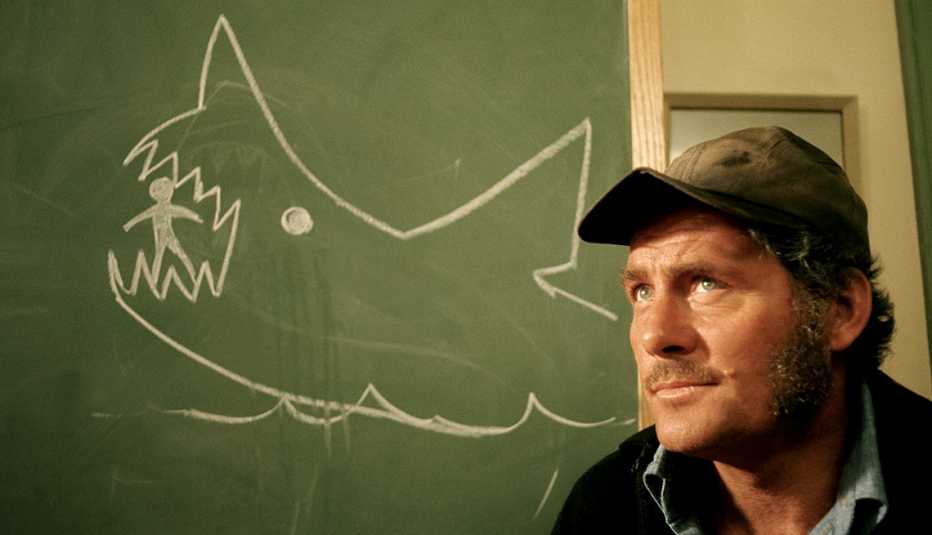
So, John sat down and wrote page after page, in long hand I believe, a very, very long speech for Quint. It was essentially too much but pared down I knew it was going to be great. When Robert Shaw, who was himself an accomplished writer, read it, he said, “It’s too hard for me to play. There’s too much John Huston in some of this monologue. Huston could say this, but I can’t do it as well as he would. Let me have a chance at rewriting it.” So, Shaw rewrote Milius, who had rewritten Sackler – the final speech in the movie is basically Shaw’s version of Milius’s version of Sackler’s version!

And the most famous line? We’re gonna need a bigger boat. This was improvised by Roy Scheider.

Spielberg said of the experience making his second theatrical-only film: Being on Jaws became a living nightmare, and not because I didn’t know what I was doing or because I was struggling to find the movie in my head. I knew the film I wanted to make. I just couldn’t get the movie I had in mind on film as quickly as I wanted. When we got out to the ocean, a lot of the crew got seasick, and once that passed, a kind of lethargy set in because we weren’t seemingly getting anything done. The end never seemed to be in sight, and yet I was the only person who could reassure the crew that there would be an end to this some day.
I never left the island because I knew that, if I did, I would never come back. Yet I never wanted to quit. Ever. I had terrible, despairing days where I could see nobody hiring me again, and I could imagine Jaws being my last studio movie. I thought I would probably go on to make independent films if I could get doctors and dentists to put up enough money to finance a little movie with four people playing cards in a room. Basically, I didn’t have much hope for any longevity for my career, but I wanted to finish Jaws because I had never stopped believing in the movie.
I thought that if we could pull the shark off – if we could get the audience to believe in this big, mechanical monstrosity, if it really worked, if it even floated – people would be frightened. But I had no idea, nor did anybody on the production, how difficult it was going to be to float that monstrosity and get it to work in the ocean. And none of us anticipated how long Jaws would take.
None of us understood the water.
It was made under the worst of conditions. People versus the eternal sea. The sea won the battle.
Spielberg describes the reaction at the first preview: We previewed the film at the Medallion Theatre in Dallas, Texas. It was the first time the public ever saw Jaws. I’d had only one experience prior to this with The Sugarland Express, where the preview audience just kept quiet the entire time. But with Jaws, it was very, very loud and people went crazy. This preview was the most extraordinary response I could ever have imagined.
At one point, I remember I was standing at the door, and after the death of the Kintner boy, a man got up and started walking out—I thought, Oh my God. Our first walkout. Then he began running and I went, Oh, no, he’s not walking out—he’s running out. I could tell he was headed for the bathrooms, but he didn’t make it and vomited all over the floor. And I just went, Oh my God, what have I done? What kind of a movie have I made? A man has just barfed because of my film. But the great news was, about five minutes later, he went right back to his seat.
The film’s success gave Spielberg carte blanche: The success of Jaws gave me final cut on every movie I’ve made since then. It gave me a chance to make Close Encounters of the Third Kind. I had written the story. I was writing the screenplay. No one wanted to touch it until Jaws became a phenomenon, and suddenly Columbia said, “Go make your movie.”
So, ultimately, Jaws was the gift that kept on giving.
All quotes from Laurent Bouzereau’s Spielberg: The First Ten Years (Insight Edition, 2023)

It’s going to be weird not being 5 minutes from each other. Los Angeles. Thirtysomething Lucy (Dakota Johnson) works as a receptionist at a spa and is best friends with London exile Jane (Sonoya Mizuno) who’s offered the opportunity to open her firm’s office back in the land of her birth by her boss Stu (Sean Hayes). Lucy falls apart at the news and admits to Jane she thinks she might be gay as she fancies her co-worker massage therapist Brittany (Kiersey Clemons). When Jane encourages Lucy to break her routines and patterns and Lucy has sex with Brittany, Lucy’s paranoia escalates and she alienates Jane, who she accuses of being a control freak. They argue and cease contact. Lucy realises Brittany is straight and gives in her notice, to focus on her passion for painting. She also goes on dates with women. Then Jane brings forward her transatlantic move but realises her situation with boyfriend Danny (Jermaine Fowler) isn’t without its problems when he declares he doesn’t want to leave LA … There’s no timeline to figuring this out. Not the most appealing poster, right?! We’ve had the quarter-life crisis movies now here’s the thirtysomething Lesbian version with a heroine taking advice from an LA astrologist’s book (You Were Born For This) and acting like Ben (Thomas Whitmer) the guy who fancies her is her gay best friend. Ironic. Maybe it’s easier to focus on someone else’s problems than face your own. Played so lightly and naturalistically that lines are thrown away that might be used to point scenes better, this coming out dramedy feels simultaneously appealing and forgettable. Everything is different when you’re abroad. Lauren Pomerantz’s gossamer script is not sharp enough but is not well served anyhow by the approach which sees comedy expert Hayes running away with his few scenes, punctuating the lo-fi melancholy and humour with broad expertise. Molly Gordon also scores as Jane’s colleague Kat. Johnson is one of the producers which indicates she is keen to pursue projects outside the Hollywood juggernauts which she has been in for some years now. She needs stronger material. Directed by Stephanie Allynne and Tig Notaro, who also appears as a DJ. Love is love

This is new. Ageing hitman Wilson (Ian McShane) is tiring of his life of violence. He heads to the island of Fuerteventura for a job. His target is absent from his remote modern villa but Wilson notices a young blonde woman arrive and go for a swim in the pool. She rides a motorbike. He decides to have a quiet holiday and books into a local hotel. At a bar he befriends bartender Gloria (Nora Arnezeder) and realises she is the woman who was swimming at the villa. He is unexpectedly drawn to American Star, the ghostly shipwreck she shows him on a beach. He forms unexpected connections including young Max (Oscar Coleman) a fellow resident at the hotel whose father’s snoring keeps him out of his room. As Wilson lets his guard down, he notices he’s being followed and is surprised to meet fellow hitman Ryan (Adam Nagaitis) who intrudes on a lunch with Gloria. When Wilson is invited by Gloria to meet her glamorous mother Anne (Fanny Ardant) he is berated by Ryan and it is then he realises the real identity of his target … Were you born in that suit? A laconic hitman on one last job. It’s an oldie but a goody as tropes go and we liked it when McShane appeared in Sexy Beast, but also when Clooney played The American and Stamp was The Limey, thematically and tonally similar territories. And did we mention The Hit, a 1984 cult classic also set against an arid Spanish backdrop with blazing sun? Yes, when it works, it works and the ingredients are blended nicely in the screenplay by Nacho Faerna. I like to meet people. That meeting with a disingenuous blonde who turns out to be his mark is something that just might move things around in Wilson’s world. The steady accretion of detail as well as surprising family revelations chip away at him as surely as the sun burns off the dried up landscape and internal textures accumulate. Wilson is a military man, a Falklands veteran whose experiences dictate his actions now. His unexpected connection with Ryan doesn’t spare his handler shadow when the inevitable cathartic violence occurs, Chekhov dictating our dramatic rules and professional hitmen having work to do. Uncle sends his love. There is a terrific emotional undertow and pressure in a thriller which pulses with the intelligent and charming performance by McShane at its centre: his face, his eyes, his voice anchor this journey. When Ardant meets him she immediately detects danger for her daughter and their dancing is strangely gripping in a narrative which always keeps the audience one step away from brash exposition. The songs are very well chosen and there’s an impeccable score from Remate. Directed and edited by Gonzalo Lopez-Gallego with gorgeous cinematography by Jose David-Montero. Almost as old as me
This is what we were all bopping to in the sweltering Summer of ’86. Remember?!

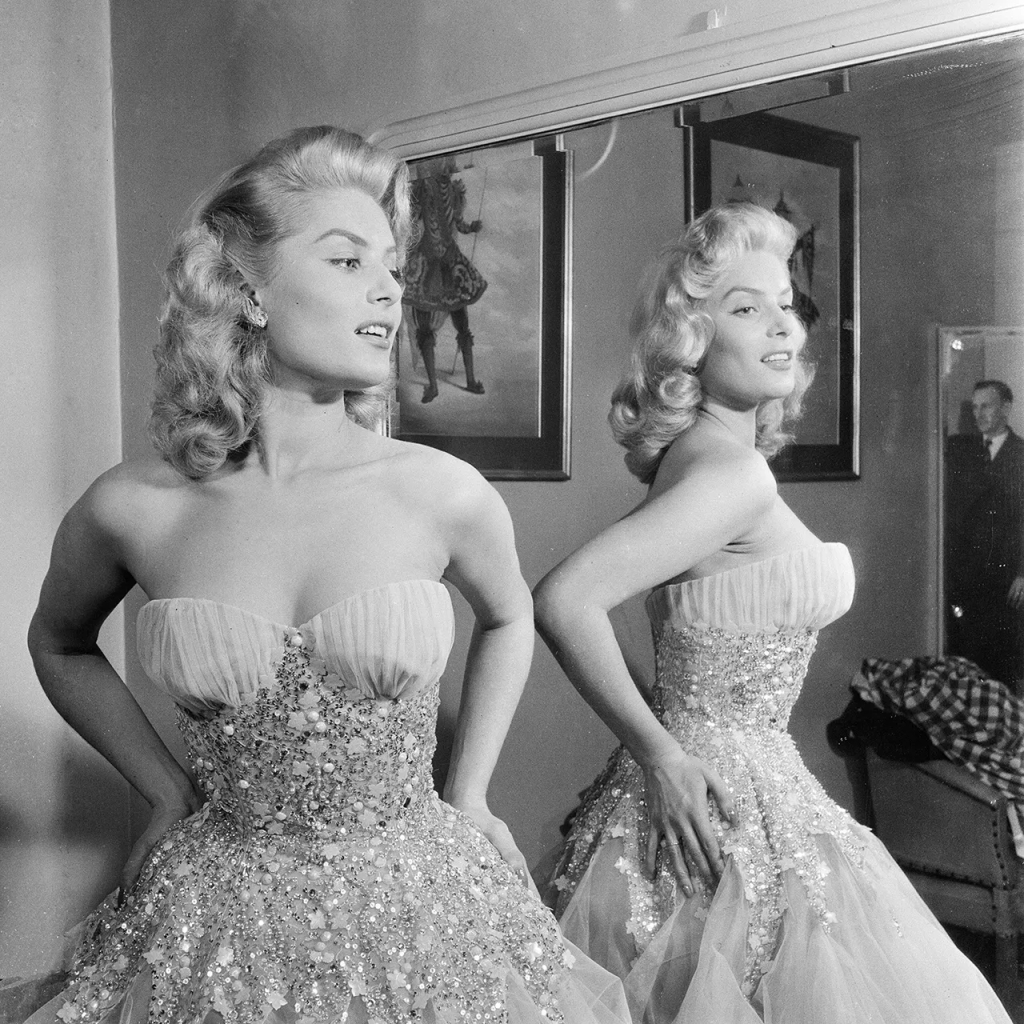

It was while she was attending the 1956 Cannes Film Festival that stunning British Rank starlet Belinda Lee was spotted by Italian producers. The following year when she was shooting The Goddess of Love in the leading role as Aphrodite, the married actress had an affair with the equally married aristocrat Prince Filippo Orsini, a papal prince and member of Roman high society. It was a relationship that struck horror into the heart of the Vatican. The couple’s alleged attempts at suicide made headlines in those dolce vita years. After being smuggled into South Africa to make romantic adventure Nor the Moon By Night, Lee continued to make films in Europe, with directors like Francesco Rosi and Damiano Damiani, co-starring with everyone from Charles Aznavour and Daniel Gelin to Alberto Sordi, Vittorio Gassman and Marcello Mastroianni in everything from realistic dramas, comedies and historical melos to serious arthouse, romances and colourful peplums.
The novelist Joy Packer whose book had been the source of that South African-set Rank film, said of Lee: Her hips were a little too big and her legs not quite enough for true grace, but what one noted was the beauty of her green cat-titled eyes, her mane of red-gold hair and the young firm contours of her throat and bosom. She was quiet and composed, easy to talk to, with a sleepy well-educated voice … She had a way of tossing her hair constantly as if she could not forget it… She was unaware of Africa, unaware of her surroundings or her job except when she was actually performing. People said that she was unapproachable. Perhaps she was, because she was wrapped in the shining cocoon of an illicit love affair. Her heart and soul were in Rome with her forbidden lover. Lee was just 22 at the time.
An almost unparalleled beauty, she was a very talented performer whose career was never properly nurtured in her home country where she had trained at RADA. She despised the typecasting that characterised her early career despite earning leading roles by her fourth film, Murder by Proxy and being voted 10th Most Popular Film Star by British film exhibitors in 1957 (the rest were men). Outside Britain she was treated as a cross between Sophia Loren and Melina Mercouri while unintentionally cultivating that reputation for scandal and notoriety via the tabloids and the feverish paparazzi. She said, I changed the day I got to Rome. One day I was a quiet English girl – the next I was a woman. What a time I had and how the Italian men love us actresses.





She is remembered today in her Devon hometown of Budleigh Salterton where a blue plaque is being unveiled at her former home, Cliff House, 10 Cliff Terrace.
Dr Phil Wickham, curator of the University of Exeter’s Bill Douglas Cinema Museum, said of the occasion: It is tremendous news that a blue plaque will now celebrate the life of Belinda Lee in her hometown. She is a fascinating figure who deserves to be better known. She was a star in two film industries who challenged the ways in which women were constrained in the post-war years. We are proud that she came from Devon and this plaque will help her to be remembered.
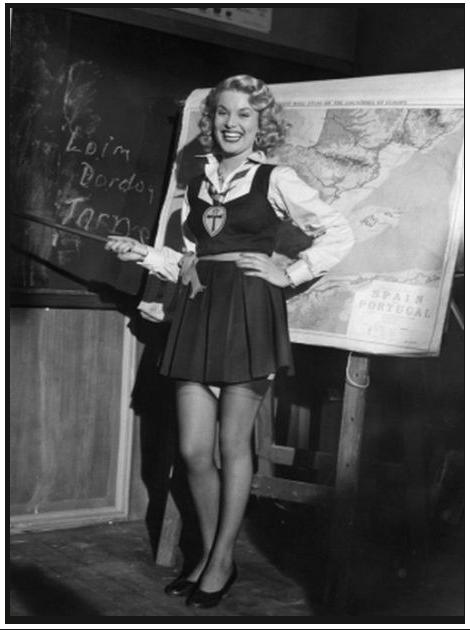
The changed role of women in society has prompted a re-evaluation of her life and aspirations in today’s more tolerant age. Lee appeared in much more overtly sexual roles than British producers had ever contemplated for her. In the Britain of the 1950s she was limited by a stereotype of demure and unthreatening beauty that fitted expectations of femininity at the time, at least for middle-class young women. The British press disapproved of her Italian career and private life, condemning Lee for being open about her desires. If she had lived perhaps she would have better fitted into the changing ethos of the 1960s.

She died tragically young in a car crash on Highway 91 just outside San Bernardino, California, 12th March 1961 with then fiance, filmmaker Gualtiero Jacopetti, who survived and dedicated his mondo documentary Women of the World, to her memory. She was all kinds of fabulous.

Lee is buried in the Cimitero Acatollico in Rome and she bequeathed £20,000 in the form of scholarships to the city’s Centre for Experimental Cinematography.
I might as well cash in on the notoriety I have got. It won’t last. I just want to live. I just want to have a good time.
MM#4600
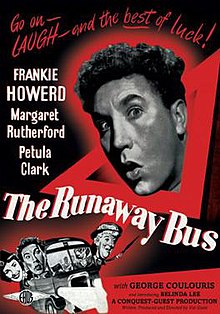
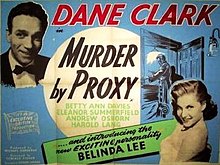
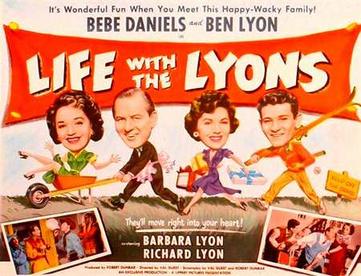






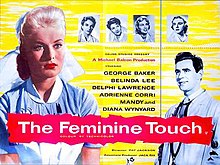


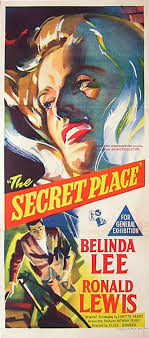




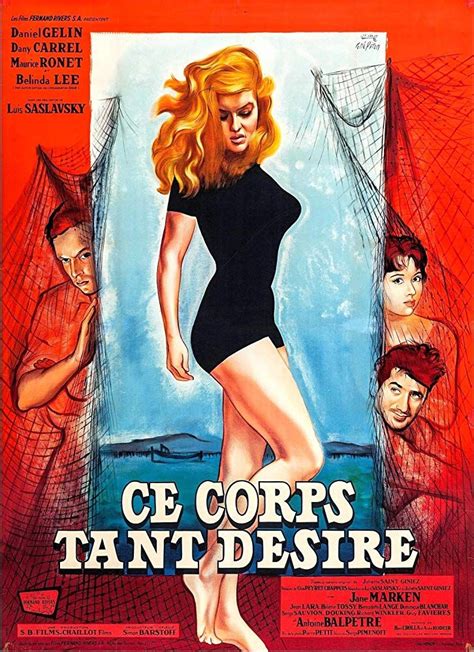

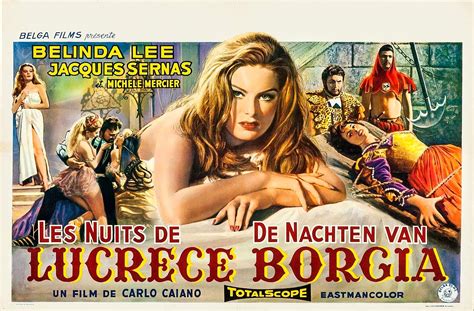
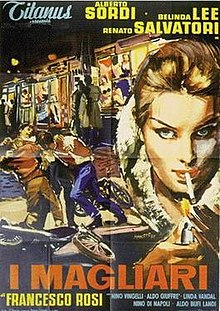
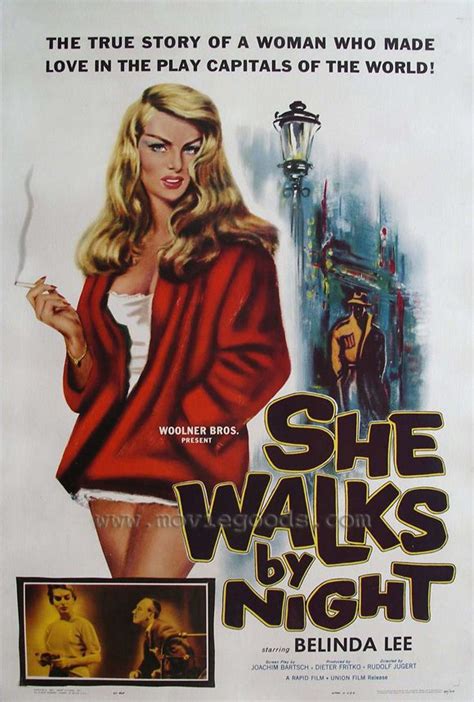

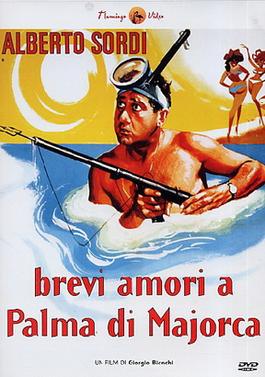



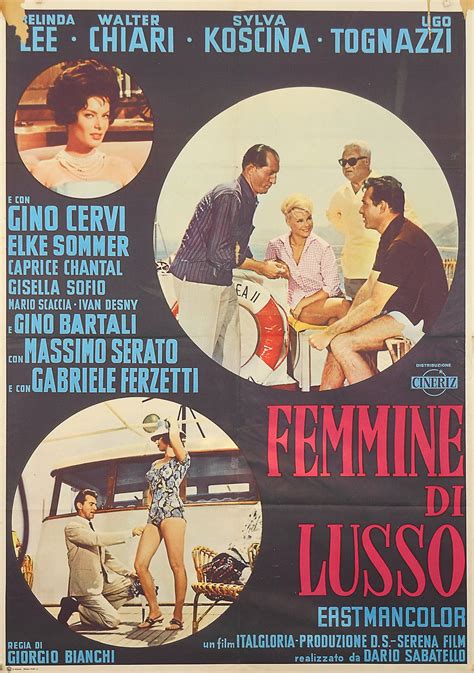
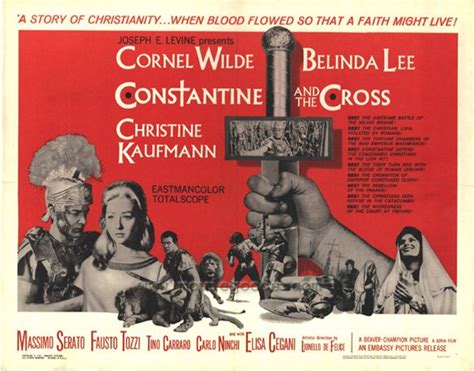





Now is not the time for me to charging off on an adventure. Hove, on the south English coast. It’s 2014. 89-year old Bernie Jordan (Michael Caine) and his wife Rene (Glenda Jackson) have been living in a retirement home since Rene’s health deteriorated. Bernie, who served in the Royal Navy during the Second World War, hopes to attend the 70th anniversary of D-Day but finds out that there are no spaces left on any group tours to Normandy for the event. Hesitant to leave Rene behind due to her fragile health, he is finally persuaded by Rene herself to find his own way to Normandy to join the commemorations. Bernie leaves the nursing home early one morning, encountering carer Adele (Danielle Vitalis) at the bus stop so he takes a taxi to Dover and gets a ticket on a ferry to France. On the ferry he meets RAF veteran Arthur Howard-Johnson (John Standing) who is part of a group tour. When Arthur sees Bernie with just a carrier bag and discovers that Bernie is travelling on his own, he invites him to join them and even to share his hotel room in France which is a pre-paid twin. Bernie is reluctant at first but ultimately agrees. Back in the UK, the care home staff are all in a panic over the mysterious disappearance of Bernie, whose whereabouts Rene does not reveal until much later in the day, when she confesses the truth to Adele, that he has escaped to Normandy. She has been diagnosed with a terminal illness and has only a short time left and she has not told Bernie about it because it would only worry him. Arthur gets a ticket for Bernie at the commemorative ceremony which is directly behind the Queen and President Obama but Bernie gives his ticket, and Arthur’s, away to Heinrich (Wolf Kahler) a German soldier who also fought on D-Day and has come to revisit Sword Beach. Leaving the ceremony behind, Bernie and Arthur head to the Bayeux War Cemetery, where Arthur looks for his brother’s grave while Bernie visits the grave of Douglas Bennett (Elliott Norman) a comrade-in-arms who was killed at the Normandy landing on D-Day after Bernie reassured him that he would be alright … A ninety year-old coffin dodger honours the glorious dead. The story of Bernard Jordan’s trip to the 70th anniversary of the D-Day landings caught the public imagination in 2014 and inspired this and The Last Rifleman, released within weeks of each other. I’d go anywhere with you. Anywhere at all. The roles are presented with irony. Jackson’s is arrestingly lively, an unexpected pleasure given her situation in the care home where she busies herself and expresses great empathy for her young carer. Caine’s in contrast is quieter, thoughtful, focussing on the immediacy of the past before him. What a waste. When the camera tracks out wide from him at Douglas’ grave to the huge cemetery it proves a reminder that this is more than a memory. The film’s midpoint, when he listens to ex-pilot Standing’s story about his raid on Caen that likely killed his own brother is truly shocking. Indeed Standing gives probably the showiest performance in the film – complex, guilt-ridden, filled with little moments of meaning culminating in that dreadful revelation. The camaraderie in evidence with the German veteran pinpoints the idea of wasted lives while the contretemps with young black British veteran Nathan (Donald Sage Mackay) heightens the sensibility of devastated youth that pervades the theme. Interspersed with the contemporary sequences are flashbacks to Bernard in combat and his relationship with Irene during the war and they are touchingly played by Will Fletcher and Laura Marcus. There is an elegiac quality to the writing from William Ivory, qualified by the fact that Jackson died prior to the film’s release and Caine announced that it would be his swansong too. What a privilege it is to see these British cinema icons revelling in their screen element, balancing and complementing each other, scene by scene, five decades after their marvellous pairing in The Romantic Englishwoman. Directed by Oliver Parker. He has done it before. Only then of course they were shooting at him

What have you done? A judicial hearing is discussing a convict named Malcolm Rivers who awaits execution for a vicious mass murder that took place at an apartment building. The execution is due to take place in a couple of days. Journals belonging to Malcolm are discovered misfiled in the case evidence; they were not introduced during the trial. Malcolm’s psychiatrist, Dr. Malick (Alfred Molina) and his defence attorney (Carmen Argenziano) argue that the journals prove Malcolm’s insanity. Meanwhile, an accident happens on a road in rural Nevada during a torrential rainstorm. Alice York (Leila Kenzle) is hit by former LAPD cop now limo driver Ed Dakota (John Cusack) who is working for impatient 80s TV actress Caroline Suzanne (Rebecca De Mornay). They bring Alice, her husband George (John C. McGinley) and Alice’s nine year-old son Timmy (Bret Loehr) to a remote motel run by manager Larry Washington (John Hawkes). The phone lines are down, the roads are flooded and there’s no hope of getting medical attention for Alice who is badly injured. The group is joined by correctional Officer Samuel Rhodes (Ray Liotta), who is transporting convicted murderer Robert Maine (Jake Busey); prostitute Paris Nevada (Amanda Peet) who is driving from Las Vegas home to Florida to start her own citrus grove; newlyweds Lou Isiana (William Lee Scott) and his wife Ginny (Clea DuVall). With the group of ten strangers in separate rooms, Suzanne is killed outside by an unknown assailant. Ed finds Suzanne’s head in a dryer in the laundry room along with the number 10 motel key. Maine is suspected to be the killer as he has escaped. Ginny locks herself in the bathroom to escape Lou during a fight but the assailant strikes again, murdering Lou out of Ginny’s sight. At the hearing, Malcolm’s diaries indicate that he suffers from dissociative identity disorder, harbouring eleven separate personalities. His defence attorney argues that he is unaware of his crimes, which is in violation of existing Supreme Court rulings on capital punishment. Dr. Malick introduces the concept of integrating the personalities of someone with DID as Malcolm is being brought in. While taking photos of Lou’s crime scene, Ed finds the number 9 key in Lou’s hands. He begins to suspect that the killer is counting down and targeting them in order. Maine fails to escape the motel area and he is subdued by Rhodes and Ed. Larry is told to guard Maine but suspicion falls on him when Maine is found dead. Rhodes and Ed find the number 8 key next to his body and they harass Larry, who takes Paris hostage … Is it a countdown? ‘It was a dark and stormy night.’ How many great stories have proceeded from that situation? This grisly and highly psychological unofficial adaptation of Agatha Christie’s And Then There Were None by Michael Cooney is an atmospheric murder mystery which once concluded has us returning to the beginning to check out the gnarly plot which concludes with a twist on a twist. A happily familiar cast lines out in a motel that has resonances with the one called Bates. To this day he remains completely unaware of the crimes he committed. Propulsively written and commencing with a judicial hearing prior to an execution of someone who isn’t introduced until the final quarter, this has a cleansing if dangerous downpour framing the action at the motel where people start arriving following a terrible car accident. Where is my face? Mixing snappy characters with vividly impressive terminal dispatches and relentless rain, having people turn on each other and unravelling at high speed different characters, each a form of disguise, making the sex worker the ironic moral compass while Ed, the ostensible protagonist, tries to solve the puzzle, all contribute to a pleasingly corkscrew narrative. I saw you in an orange grove. * Spoiler alert* As the identifies confront each other while the murderer’s personality deconstructs and their numbers are inevitably reduced in the fantasy murder spree, the plot structure is revealed. It’s a cunning tale, wrapped up in the enigma of a fractured personality. Directed with verve by James Mangold who manages to visually imbue a highly internal dream of a script with dash and shocking externalised violence. Who am I speaking to right now?